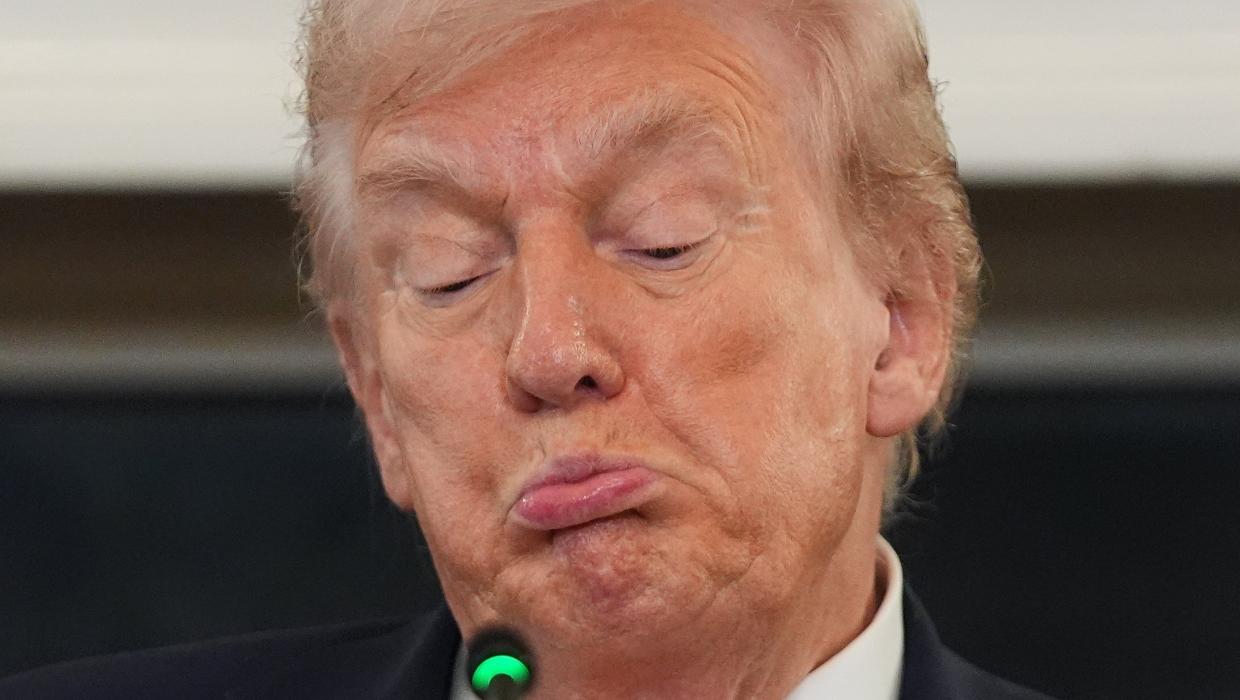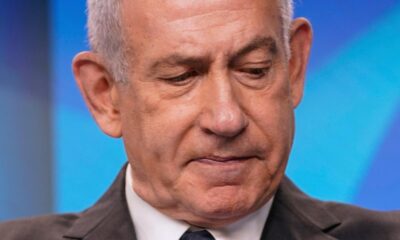Politics
Trump’s Gaza Deal Sparks Ceasefire, But Long-Term Peace Remains Elusive

Former President Donald Trump announced a ceasefire agreement on July 15, 2023, aimed at halting the ongoing violence between Hamas and Israel. While this deal represents a significant step towards reducing hostilities, analysts caution that it fails to address the underlying issues that have perpetuated conflict in the region for decades.
Ceasefire or Lasting Peace?
The agreement, brokered with the involvement of multiple international stakeholders, including the United Nations, marks a critical pause in the cycle of violence that has plagued Gaza and surrounding areas. Initial reports indicate that both parties have agreed to suspend military actions, which could provide temporary relief to civilians caught in the crossfire. Yet, many experts argue that a ceasefire alone is insufficient for achieving lasting peace.
According to a statement from the United Nations, the ceasefire aims to protect civilian lives and facilitate humanitarian aid in the region. However, the statement also highlighted that sustainable peace requires addressing the root causes of the conflict, such as territorial disputes, historical grievances, and political instability.
Gaza has witnessed severe escalations in violence over the years, leading to significant loss of life and widespread destruction. The recent conflict resulted in thousands of casualties, compelling international leaders to seek a resolution. Trump’s announcement comes amid growing calls for a more substantial and comprehensive approach to peace in the Middle East.
Analyzing the Motivations Behind the Deal
Some observers speculate that Trump’s involvement in the Gaza ceasefire might be motivated by a desire to secure a diplomatic legacy, potentially positioning himself for a future peace prize. While such intentions raise questions about the sincerity of the negotiations, the immediate impact of the ceasefire is undeniable.
Critics of the deal point out that a mere cessation of hostilities does not resolve the complexities of the Israeli-Palestinian conflict. They emphasize that without meaningful dialogue and a commitment to addressing the political and social factors at play, the agreement risks becoming another temporary fix rather than a pathway to genuine resolution.
As the ceasefire holds, humanitarian agencies are mobilizing to provide essential services to affected populations. The International Red Cross has warned that without sustained efforts to rebuild and promote dialogue, the region may return to violence once the ceasefire is lifted.
In summary, while Trump’s Gaza deal may serve as a critical pause in violence, it raises important questions about the future of peace in the region. As leaders navigate the delicate balance between immediate relief and long-term solutions, the focus must shift towards addressing the deeper issues that fuel the conflict. Only through comprehensive engagement can the cycle of violence truly be broken.
-

 World7 days ago
World7 days agoPrivate Funeral Held for Dean Field and His Three Children
-

 Top Stories2 weeks ago
Top Stories2 weeks agoFuneral Planned for Field Siblings After Tragic House Fire
-

 Sports3 months ago
Sports3 months agoNetball New Zealand Stands Down Dame Noeline Taurua for Series
-

 Entertainment3 months ago
Entertainment3 months agoTributes Pour In for Lachlan Rofe, Reality Star, Dead at 47
-

 Entertainment2 months ago
Entertainment2 months agoNew ‘Maverick’ Chaser Joins Beat the Chasers Season Finale
-

 Sports3 months ago
Sports3 months agoSilver Ferns Legend Laura Langman Criticizes Team’s Attitude
-

 Sports4 weeks ago
Sports4 weeks agoEli Katoa Rushed to Hospital After Sideline Incident During Match
-

 Politics2 months ago
Politics2 months agoNetball NZ Calls for Respect Amid Dame Taurua’s Standoff
-

 World2 weeks ago
World2 weeks agoInvestigation Underway in Tragic Sanson House Fire Involving Family
-

 Entertainment3 months ago
Entertainment3 months agoKhloe Kardashian Embraces Innovative Stem Cell Therapy in Mexico
-

 Top Stories2 weeks ago
Top Stories2 weeks agoShock and Grief Follow Tragic Family Deaths in New Zealand
-

 Sports4 weeks ago
Sports4 weeks agoJamie Melham Triumphs Over Husband Ben in Melbourne Cup Victory





















